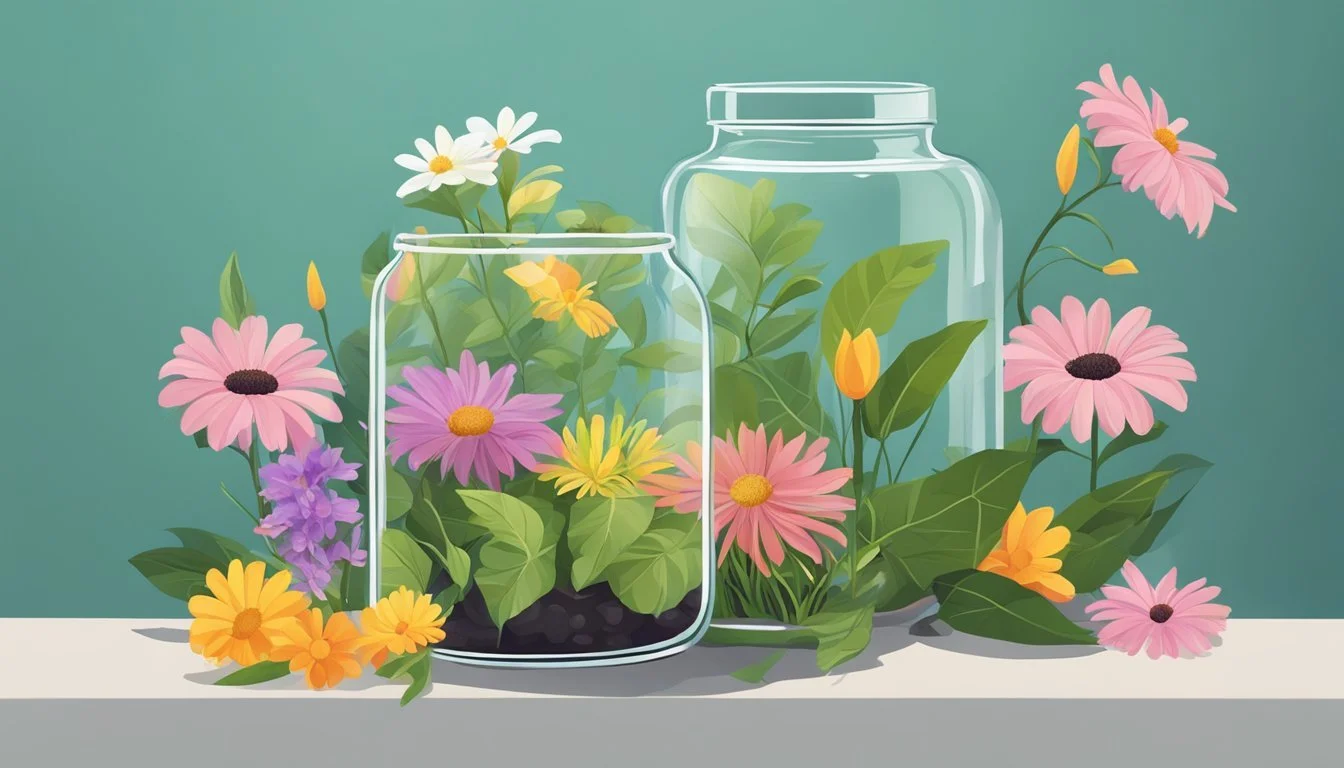From Toxic to Thriving: Inspiring Stories of Healthy Relationships on Reddit
Toxic relationships can leave deep scars, but some couples manage to turn things around. Reddit users have shared experiences of transforming unhealthy dynamics into loving partnerships. With mutual effort, self-reflection, and willingness to change, it is possible for a toxic relationship to become healthy.
The journey from toxicity to health often begins when both partners recognize destructive patterns. Small changes can make a big difference. One Reddit user described crying with relief when their new partner respected a simple "no" without argument. This highlights how basic respect and communication form the foundation of healthier interactions.
Rebuilding trust and changing ingrained behaviors takes time and commitment. Professional help through therapy can provide valuable tools and guidance. Setting clear standards for treatment and learning to enforce boundaries are key steps. While not all toxic relationships can or should be salvaged, some couples find renewed connection by addressing root issues together.
Understanding Toxic Relationships
Toxic relationships can severely impact mental health and well-being. They often involve harmful patterns of behavior that erode trust, respect, and emotional safety between partners.
Defining Toxic Relationship Dynamics
Toxic relationships are characterized by persistent negative interactions that damage self-esteem and emotional health. These dynamics may include constant criticism, manipulation, control, and lack of support. One partner often feels they must "walk on eggshells" to avoid conflict or negative reactions.
Disrespect is a key element in toxic relationships. This can manifest as dismissing feelings, mocking, name-calling, or ignoring boundaries. Trust issues are common, with one or both partners feeling insecure or suspicious.
Toxic relationships frequently involve power imbalances. One partner may dominate decision-making or use threats to maintain control. This creates an unhealthy dynamic where one person's needs are consistently prioritized over the other's.
Recognizing Signs of a Toxic Relationship
Red flags in toxic relationships include:
Constant criticism or belittling
Frequent arguments that never resolve
Feeling drained after interactions
Loss of self-confidence
Isolation from friends and family
Jealousy and possessiveness
Lack of emotional support
Physical symptoms like anxiety, sleep disturbances, and changes in appetite can also indicate relationship toxicity. A person may experience a constant sense of unease or dread about their partner's reactions.
Healthy relationships involve mutual respect, trust, and support. If these elements are consistently missing, it may signal a toxic dynamic.
Common Forms of Emotional Abuse
Emotional abuse is a hallmark of toxic relationships. It can take various forms:
Gaslighting: Making a partner doubt their own perceptions and memories
Silent treatment: Withholding affection or communication as punishment
Verbal attacks: Yelling, insulting, or humiliating a partner
Control: Dictating a partner's choices, friendships, or activities
Guilt-tripping: Manipulating through excessive blame or shame
These behaviors create a cycle of fear, self-doubt, and dependency. The abused partner may struggle to recognize their own worth or ability to leave the relationship.
Emotional abuse can be subtle and escalate over time. It's crucial to recognize these patterns early to protect mental health and well-being.
Journey to a Healthy Relationship
Transforming a toxic relationship into a healthy one requires dedication, self-reflection, and mutual effort. It involves making positive changes, understanding oneself better, and rebuilding trust through open dialogue.
Commitment to Change
Transitioning from toxic to healthy dynamics demands a strong commitment from both partners. Each person must acknowledge their role in the unhealthy patterns and actively work to modify harmful behaviors. This process often involves seeking professional help, such as couples therapy or individual counseling.
Setting clear boundaries is crucial. Partners should establish and respect each other's limits, fostering a sense of safety and mutual respect. Consistency in following through on promises and agreements builds reliability and strengthens the relationship's foundation.
Patience is key during this transformation. Change takes time, and setbacks may occur. Celebrating small victories and supporting each other through challenges reinforces the commitment to growth.
Developing Self-Awareness
Self-awareness is vital for personal growth and relationship improvement. Partners must examine their own thoughts, feelings, and actions without judgment. This introspection helps identify triggers, unhealthy coping mechanisms, and areas for improvement.
Recognizing personal insecurities and past traumas allows individuals to address these issues head-on. Therapy can be instrumental in this process, providing tools and techniques for managing emotions and reactions more effectively.
Practicing mindfulness helps partners stay present in the relationship. It enables them to respond thoughtfully rather than react impulsively to situations, reducing conflicts and misunderstandings.
Building Trust and Open Communication
Rebuilding trust is essential for healing a previously toxic relationship. This process requires honesty, transparency, and consistent actions that align with words. Partners should create a safe space where they can express themselves without fear of judgment or retaliation.
Active listening plays a crucial role in fostering open communication. Each person should strive to understand their partner's perspective, validating their feelings even when disagreeing. Using "I" statements helps express emotions without placing blame.
Addressing past hurts is necessary but should be done constructively. Partners can work together to find solutions and create new, positive experiences. Regular check-ins allow couples to discuss their progress and any lingering concerns.
Communication Strategies
Effective communication forms the cornerstone of transforming toxic relationships into healthy ones. Open, honest dialogue and active listening create trust and understanding between partners.
Principles of Effective Communication
Clear and respectful expression of thoughts and feelings is essential. Partners should use "I" statements to convey their perspectives without blame. Active listening involves giving full attention and reflecting back what was heard.
Nonverbal cues like eye contact and body language play a crucial role. Timing matters - choosing the right moment for important conversations improves outcomes. Regular check-ins help address issues before they escalate.
Empathy and validation of each other's experiences strengthen emotional bonds. Curiosity about a partner's viewpoint fosters mutual understanding.
Avoidance and Its Pitfalls
Avoiding difficult conversations often worsens relationship problems. Unaddressed issues fester and create resentment. Silent treatment or stonewalling damages trust and intimacy.
Avoidance can stem from fear of conflict or past negative experiences. Recognizing these patterns is the first step to changing them. Small steps to engage in dialogue build confidence over time.
Partners may need to examine personal triggers that lead to avoidance. Professional help can provide tools to overcome communication barriers.
Resolving Conflicts Constructively
Approaching disagreements as a team, rather than adversaries, sets the stage for positive outcomes. Focus on the issue at hand, not personal attacks. Use specific examples to clarify concerns.
Take breaks if emotions run high, but commit to revisiting the topic. Brainstorm solutions together and be willing to compromise. Acknowledge each other's efforts and progress.
Follow through on agreed actions to rebuild trust. Celebrate successful conflict resolution as it strengthens the relationship.
Personal Growth and Therapy
Transforming a toxic relationship into a healthy one requires deep personal work and often professional guidance. Many individuals find therapy and self-reflection essential for breaking harmful patterns and fostering positive change.
Role of Individual Therapy
Individual therapy provides a safe space for exploring personal issues and relationship dynamics. A therapist can help identify toxic behaviors, underlying causes, and strategies for improvement. Cognitive-behavioral therapy (CBT) is particularly effective in challenging negative thought patterns.
Therapy also builds self-awareness and emotional intelligence. These skills are crucial for recognizing triggers and managing reactions in relationships. Many Reddit users report breakthroughs in understanding their own needs and boundaries through therapy.
Healing from Past Relationship Trauma
Addressing past trauma is vital for creating healthier relationships. Trauma-informed therapy approaches help individuals process unresolved issues and break cycles of toxicity.
Techniques like EMDR (Eye Movement Desensitization and Reprocessing) can be effective for healing relationship trauma. Many find journaling, mindfulness practices, and support groups helpful in their healing journey.
Building self-esteem and setting boundaries are key aspects of recovery. These skills empower individuals to assert their needs and maintain healthier dynamics in future relationships.
Engaging with Professional Help
Seeking professional help is a crucial step in transforming toxic relationships. Couples therapy can provide a structured environment for addressing issues together. A skilled therapist can mediate conflicts and teach effective communication techniques.
Some couples benefit from relationship coaching or workshops focused on building healthy partnerships. These programs often teach practical skills like active listening and conflict resolution.
It's important to find a therapist or counselor who specializes in relationship issues. Many professionals offer both in-person and online sessions, making therapy more accessible.




